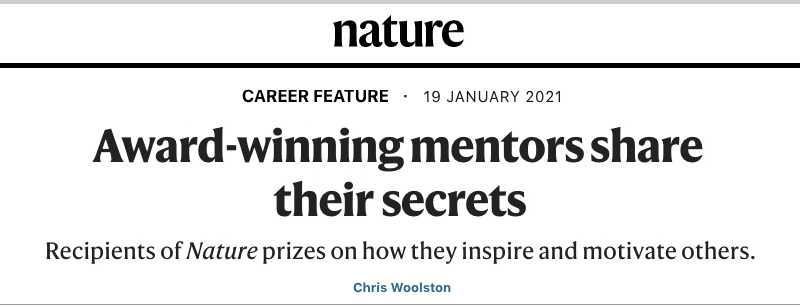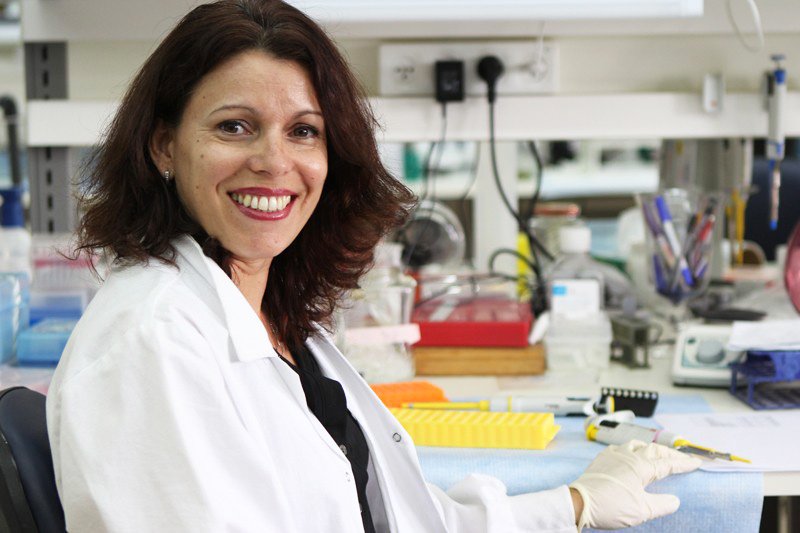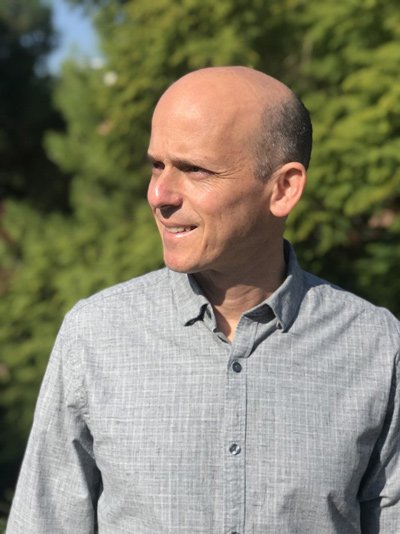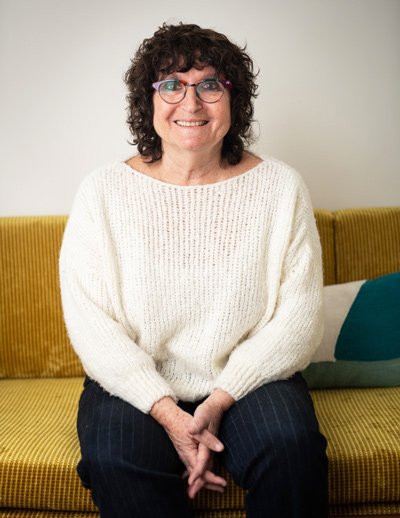Editor’s note: Hebrew U bioinformatician Hanah Margalit was the recent recipient of Nature’s lifetime achievement in mentoring award, and shares how she inspires and motivates others.


The 2020 Nature Research Awards for Mentoring in Science recognized three researchers working in Israel. Neta Erez, a cancer biologist at Tel Aviv University, and Tal Pupko, a molecular biologist also at Tel Aviv University, shared the mid-career mentoring achievement award. Hanah Margalit, a bioinformatician at the Hebrew University of Jerusalem, won the award for lifetime achievement in mentoring.
The winners have much in common beyond their shared home nation. Each sees mentorship as a fundamental part of their role as a scientist, and all are eager to offer advice to other principal investigators (PIs) who want to improve their mentoring skills.
The winners’ efforts to inspire and motivate their teams are clearly effective. The materials provided to support their nominations — from colleagues, and current and former students — brim with gratitude and admiration.
Pupko earned praise for always making his students his “highest priority” without compromising scientific excellence. A former student wrote that Erez combines “endless drive and professionalism” with patience, openness and a willingness to listen.
And another former student said that Margalit, a pioneer of bioinformatics in Israel, has “touched the lives and careers of multiple current faculty members, both new and established, with her enthusiasm, empathy, and critical mind”.
The three winners were announced on 21 December; Margalit receives a US$10,000 cash prize, and Erez and Pupko share another $10,000. Nature spoke to them to learn more about their mentoring styles and their top tips for leading a lab.
NETA EREZ: Mid-career mentoring achievement
Emphasize soft skills.
As a community, scientists are rarely formally taught many of the skills they need, such as how to write, how to present their work and how to mentor others. I tell PhD students that they need to learn more than just how to conduct experiments. Those sorts of things weren’t part of the science curriculum, so I helped to create a ‘soft skills’ workshop at the university. We teach how to give and receive feedback, which is really a life skill, not just for science. Students learn how to write a CV and how to review papers. The workshop is limited to 15 students each year, and there is always a fight for spots.
Choose your team carefully.
Surrounding yourself with people who are ready to be motivated and inspired is a crucial step towards successful mentorship. I have long interviews with prospective students before I offer them a position in my lab. I ask open questions about them and their goals, and let them talk. If you listen, you can learn a lot about a person. I look for a spark. I can teach people how to frame a hypothesis, but I can’t give them passion. They need to bring that with them. If I don’t feel comfortable talking to someone, then they aren’t the right person for my lab, even if their CV is perfect.
Embrace individuality.
Each of my PhD students has set me on a different mentoring journey. I try not to mould them in my own image; instead, I aim to find out what works for them. I don’t dictate from the start that they should do science in a uniform way. It has to be their own PhD.
Some students are extremely talented, but have a hard time focusing. Some might need to be more critical about what they do, and some need to stop being so critical of themselves. There are clear limits on individuality. There is only one right way to do statistics. But I do let them put some of their soul into their work. Students have different ways of preparing their experiments. It’s like cooking. People have different styles.
TAL PUPKO: Mid-career mentoring achievement

Let students do the writing.
As a PI, you have to be willing to sacrifice some immediate rewards for the long-term gains of turning students into scientists. Writing papers is a perfect example: new PhD students don’t have much experience of writing manuscripts. It would be much easier and faster for me to write the manuscripts, but I insist that they do it. We then go over each sentence and each paragraph. The first draft is often full of mistakes, and papers can go through many iterations before they are ready to be submitted. It can take forever for a student to finish their first manuscript. But by the time they come to the end of their PhD, they’ll produce first drafts that are almost perfect.
Encourage a good work–life balance.
I have four kids, so I understand the pressure on young parents who are torn between the need to kiss their children goodnight and the desire to move forwards with their PhDs. I encourage humane working hours, and I ensure that my students get the maternity or paternity leave that they need, even if that means a slight drop in scientific productivity.
It’s a delicate balance. If a student goes on leave, we’ll work something out so that he or she can keep in touch. Then they can gradually come back to work.
Help students to see the big picture.
When you start a research project, you’re looking at the tip of the iceberg. It can be difficult for students to know why anyone even cares about the specific scientific topic they’re investigating. Before the pandemic made travel difficult, I found it was cost effective to spend $2,000 to send a student to a conference in Europe or the United States. For their first conference, I would go along, sit with them in the lectures and take them to social events afterwards. When they came back to the lab, they had a better understanding of why their work matters.
Attending conferences, wherever they are held, is important for the students, but it’s really a mutual benefit. They’re gaining from the exposure and I’m gaining motivated students. We’ve all been getting by with virtual conferences over the past few months, but I’m looking forward to a time when we can all connect in person again.
HANAH MARGALIT: Lifetime achievement in mentoring

Mentorship doesn’t stop at the lab.
Over the years, many young PIs, including some who were never members of my lab, have come to me for guidance and advice. We’ll sit down and talk about their progress. I’ll even review papers if they ask. I’m currently consulting with several PIs who want help with grant applications. I sometimes ask myself why I do it. But if somebody needs my help, I can’t even think about saying no. I care about their success.
Collaborate and listen.
I spend a lot of time with my students discussing their work and exploring possible directions. The conversations go back and forth like a table-tennis match. In the end, the research might turn out to be very successful, but we can’t say for sure who came up with the idea because we built it together. It gives them confidence.
If a student is going to give a talk at a conference, I’ll have them present it at a group meeting first. I’ll listen to it again and again and give advice. I take the same approach with manuscripts. A paper can go through 67 iterations before we get it right, but we do it together.
Stay optimistic.
I am very positive and optimistic, and I think my students absorb these traits. Obviously, scientific research projects come with a lot of frustrations. I overcome these with four words that form the motto of my scientific life (and of life in general): optimism, faith, courage and activity. A scientist needs all four to succeed. In Hebrew, each of these words starts with ‘Alef’, the first letter of the alphabet. As a result, our motto in the lab is “Alef, Alef, Alef, Alef!” We take it to heart.